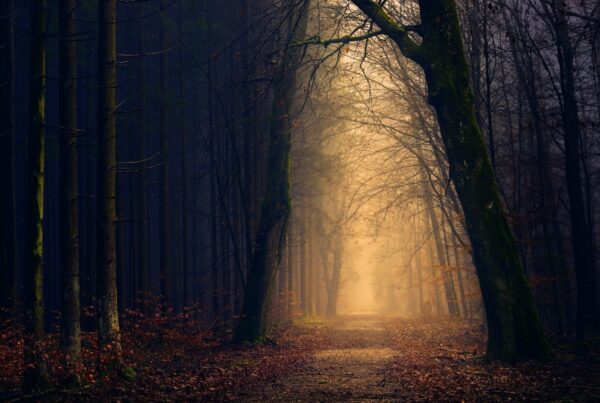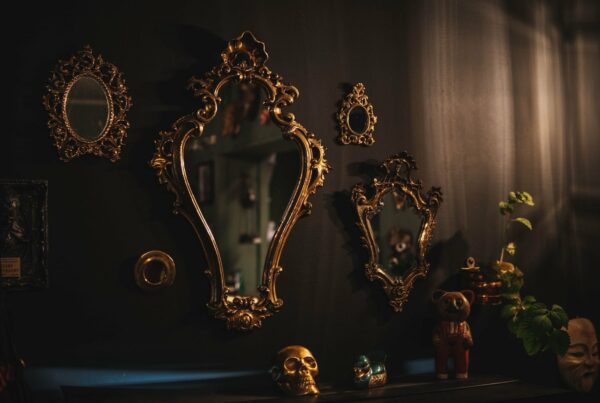Months ago, when we began discussing a sermon series on Jonah, the thought of a man living inside a fish sounded like crazy talk. My five-year-old would call it “ridicklyous.” (I love it when she crosses her arms and exclaims, “This is just ridicklyous!”)
These days, we’re a little more acquainted with the ridicklyous.
What are the odds that a perfect storm of mutations could create a virus capable of shutting down the globe in the event of the century? Suddenly, being swallowed by a fish doesn’t sound quite so unthinkable. Can you imagine living in total isolation?
Despairing? Fearing for your life? Yes, yes, and for many of us, yes.
In the 16th century, a Spanish priest named St John wrote a poem about a spiritual crisis of faith, described as a “dark night” in which light can only be found within the soul. It was later titled, “The Dark Night of the Soul,” an expression that became common among theologians to describe spiritual depression and angst.
Jonah captures the dark night of the soul in Jonah 2:2 when he prays from inside the fish: “In my distress I called to the Lord, and He answered me. From deep in the realm of the dead I called for help, and You listened to my cry.” Other translations read, “out of the belly of Sheol,” the “belly of Hell,” the “depths of death,” and the “belly of the grave.”
Depth. Darkness. Death. This is the language Jonah uses to describe not only his physical location, but his spiritual languishing. Can you relate? Have you ever walked through a season so spiritually dark it felt like hell itself? Are you walking through such a season now?
Sometimes we wonder, “How can a Christian despair so intensely? Is my faith even genuine?” Theologian R.C. Sproul has this to say in response:
We may think that the dark night of the soul is something completely incompatible with the fruit of the Spirit, not only that of faith but also that of joy. Once the Holy Spirit has flooded our hearts with a joy unspeakable, how can there be room in that chamber for such darkness? It is important for us to make a distinction between the spiritual fruit of joy and the cultural concept of happiness. A Christian can have joy in his heart while there is still spiritual depression in his head.
In other words, joy and sorrow are not mutually exclusive. They can and often do co-exist. If you’ve ever felt alone in the depth of your distress, take a look at some of the spiritual giants who were no strangers to the dark night of the soul.
John Wesley, who led a revival within the Church of England, described his “lowness of spirit” by writing:
The mind seems chiefly to be affected, having lost its relish of everything, and being no longer capable of enjoying the things it once delighted in most. Nay, everything round about is not only flat and insipid, but dreary and uncomfortable. It is not strange if, to one in this state, life itself is become a burden.
French theologian John Calvin suffered chronic anxiety, eventually concluding, “We are continually tormented until God delivers us from misery and anguish by the remedy of His own love towards us.”
John Bunyan, who wrote the iconic Christian allegory, The Pilgrims Progress, was known to battle depression, as was Charles Spurgeon, who once wrote, “The flesh can bear only a certain number of wounds and no more, but the soul can bleed in ten thousand ways, and die over and over again each hour.”
Martin Luther, who changed the face of Christianity when he sparked the Protestant Reformation, wrote this in one of his letters:
When I first entered the monastery it came to pass that I was sad and downcast, nor could I lay aside my melancholy. On this account I made confession to and took counsel with Dr. Staupitz (a man I gladly remember) and opened to him what horrible and terrible thoughts I had. Then said he: “Don’t you know, Martin, that this temptation is useful and necessary to you? God does not exercise you thus without reason. You will see that he intends to use you as his servant to accomplish great things.”
What hope-filled words from a spiritual mentor! Every Christian’s journey will occasionally wind through the valley of the shadow of death, and when it does, we need wisdom such as this. We need to be candid with a Christian mentor or a professional counselor. We need community, support, prayer, and worship.
If you’re walking through a dark night of the soul, check out Grace’s resources for pastoral or professional counseling, and take heart — you are not alone.






Can you document your Wesley quote for me?
The quote is from an article Wesley wrote called “Thoughts on Nervous Disorders” (1784), published in Arminian Magazine for January–February 1786.
Clint! The story of Jonah is not meant to be taken literally!!
It most certainly is to be taken literally. God can do anything ! Where is your faith? That’s what my mother asked me when I was going blind in right eye.. It was a slap in the face wake up question. My vision was restored shortly thereafter. God can make a fish swallow a man and spit him back out. God can do anything He wants to. God bless you.
This is spot on and where I’ve been dwelling for over a year now. This is an encouraging word for those who are dwelling in God’s waiting room to Resurrection and Glory. Praise Jesus 🙏